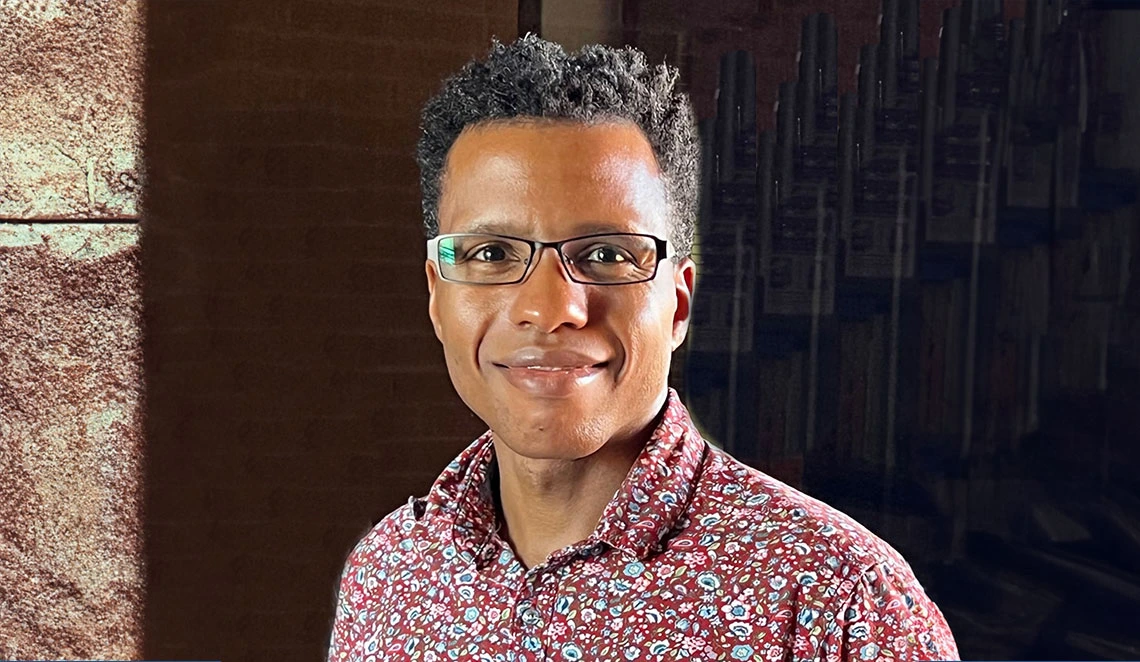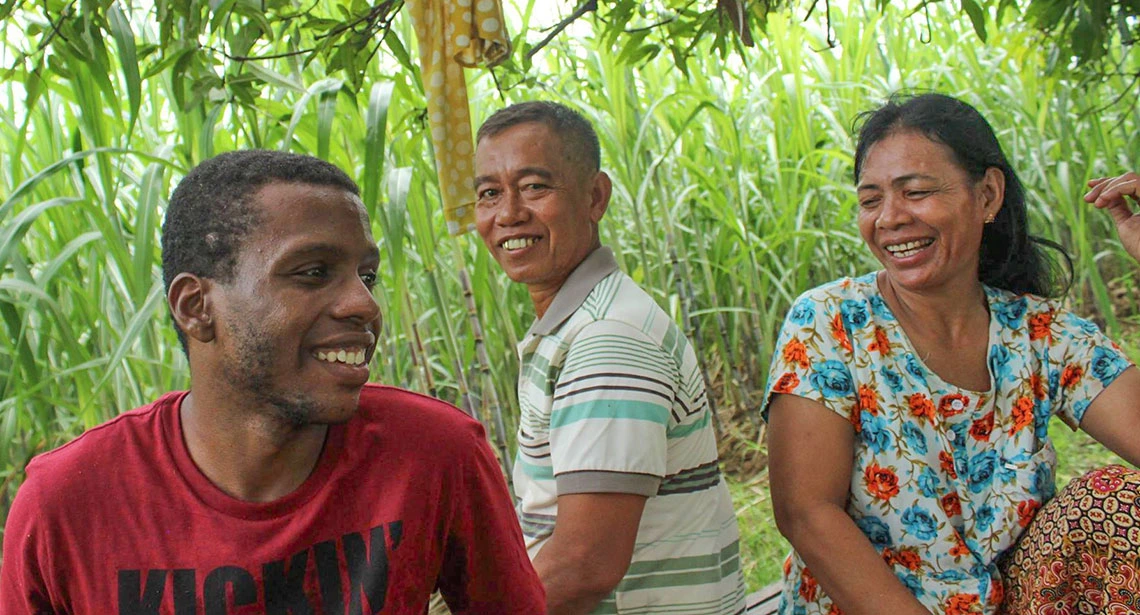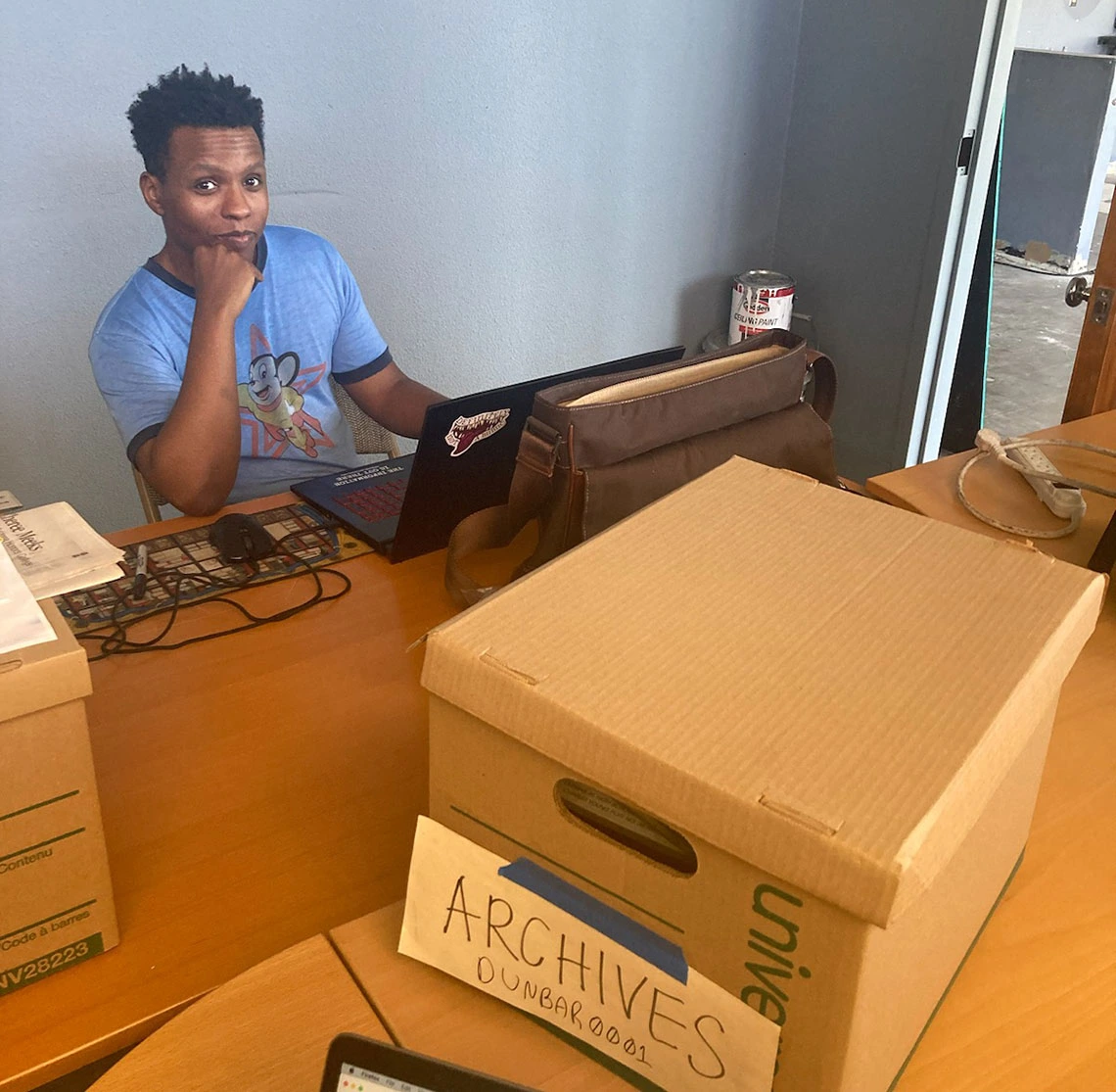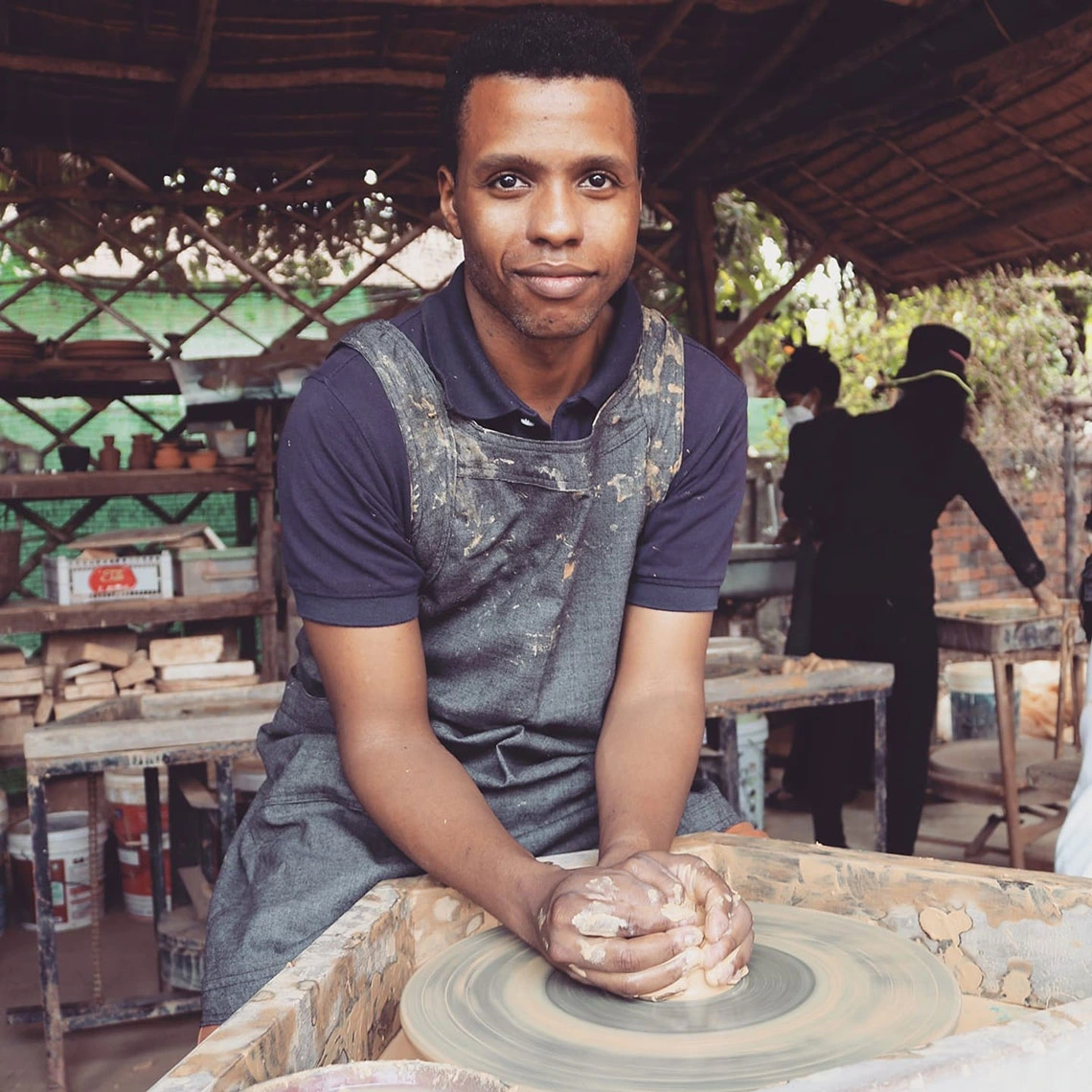From the Peace Corps to Knowledge River: 10 Questions with Bryan Armstrong, MLIS ’23
INFOSCI STUDENT PROFILE

Because of my time in Cambodia, with the specter of the Khmer Rouge and its legacy looming large over the country, I’m very interested in the subject of archival silences.
Originally from Jacksonville, Florida, first-generation student Bryan Armstrong moved to Tucson from Cambodia, where he served in the Peace Corps, to earn his Master of Arts in Library and Information Science. A December 2023 graduate and recipient of the College of Information Science Outstanding Graduate award, he is a participant in the Knowledge River Scholars Program.
What brought you to the University of Arizona to study library and information science?
I was a Peace Corps volunteer in Cambodia from 2015 to 2017. After I finished, I stayed in the country for another four years. Amidst COVID I decided to apply for graduate school. The University of Arizona is part of the Peace Corps Coverdell Fellows Program, which gives discounts to grad school for former volunteers. The fellowship was able to cover tuition for the MLIS program, so I applied and relocated to Arizona in 2021.

Bryan Armstrong, MLIS '23, with his Peace Corps host family in Cambodia. Photo courtesy Bryan Armstrong.
What areas of focus in library and information science most interest you?
I have so many! It’s hard to choose.
Because of my time in Cambodia, with the specter of the Khmer Rouge and its legacy looming large over the country, I’m very interested in the subject of archival silences. Why certain events and people are remembered over time, and how it doesn’t take much for certain things to be forgotten or misrepresented, is endlessly fascinating.
I’m also a geek! So I’ve done quite a lot of scholarship on fan fiction and how it intersects with areas of representation and copyright. I’ve also had a keen interest in toy/game archiving, and the relatively new but ever-growing field of video game archives.
What do you like best about the Master’s in Library and Information Science program?
I love the moment when I am able to make connections between the information that I learned and an actual task that I’m accomplishing. I love those little a-ha! moments when it all comes together for me. It proves that I’m actually learning something and that I’m making more progress than what I initially thought.
What has been your biggest challenge at the College of Information Science, and how have you overcome that challenge?
Doubt in my abilities? I had decided to pursue my MLIS shortly before applying for the program, and I had no prior experience in libraries or archives. When you take your first class, you are attending with people who have worked in libraries or are doing work with archives. That made me feel like I had nothing to offer. Over time, I realized that I could incorporate my experiences and interests into my scholarship and that my perspective could make a contribution.

Bryan Armstrong processing artifacts at the Dunbar Pavilion. Photo courtesy Bryan Armstrong.
What has been your biggest challenge outside of the College of Information Science, and how have you overcome that challenge?
Finding free time! With classes, work, my graduate assistantship, and my internship, it’s very hard to permit myself to relax. Sometimes you need to force yourself to take a nap, schedule time to play a video game or drag yourself into the outside world to enjoy yourself.
Tell us about your current internship and career aspirations.
I’m currently a library associate with Pima County Public Library. For my internship with Knowledge River, I have been processing artifacts at the Dunbar Pavilion as they are beginning to develop their archive space. I’m also a graduate assistant for the Knowledge River office, where I have been working on developing the program’s digital archive, with the help of two other Knowledge River scholars.
After graduation, I plan to move to the East Coast. I miss it! Ideally, I’ll find an archiving position, but I have a lot of faith in my abilities to succeed. I’ve moved from Florida to Oregon, to Cambodia, to Tucson, and I’ve always landed on my feet, so I hope that’s a continuing trend.
What other academic programs are you involved with?
For my first year at UA, I was part of the Peace Corps Coverdell Program, which included community outreach projects, and events where I spoke about my Peace Corps service.
I have also been part of the Knowledge River Scholars Program since I began the MLIS program. Knowledge River is a program dedicated to the training and retention of BIPOC library and information science professionals, and training in critical theory, which is much needed in the field.

Bryan Armstrong has many passions outside of his library and information science studies. Photo courtesy Bryan Armstrong.
What are your passions outside of school?
I’m a game freak! Board games, video games, role-playing games. I love constructed worlds, and rules, and how they come together to create a communal experience. I’m currently trying to teach myself to draw, and I love gardening. I’m also just a couch potato. If I say I’m into media studies, does that sound better than “I watch way too many movies?”
What does the InfoSci experience mean for you?
To me, it means finding the niche that works for you. There are so many areas that you can go into that you’re overrun with choices. It’s important to experiment with as much as possible because even if it’s an area that you aren’t going into, it’ll still be valuable in the area that you eventually choose.
What advice do you have for prospective MLIS students?
It's not about managing the work. It’s more about managing yourself, your environment, your expectations, your time. Using all the tools that you have, and are offered by U of A, will help you deal with that.
Explore the Master of Arts in Library and Information Science, offered on campus and online, or support the Knowledge River Scholars Program and College of Information Science students.

